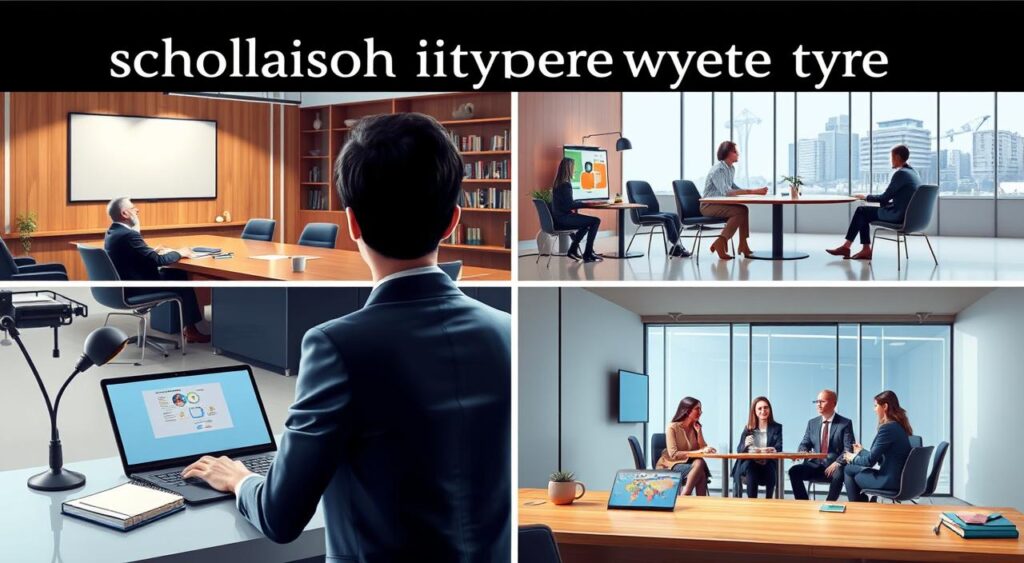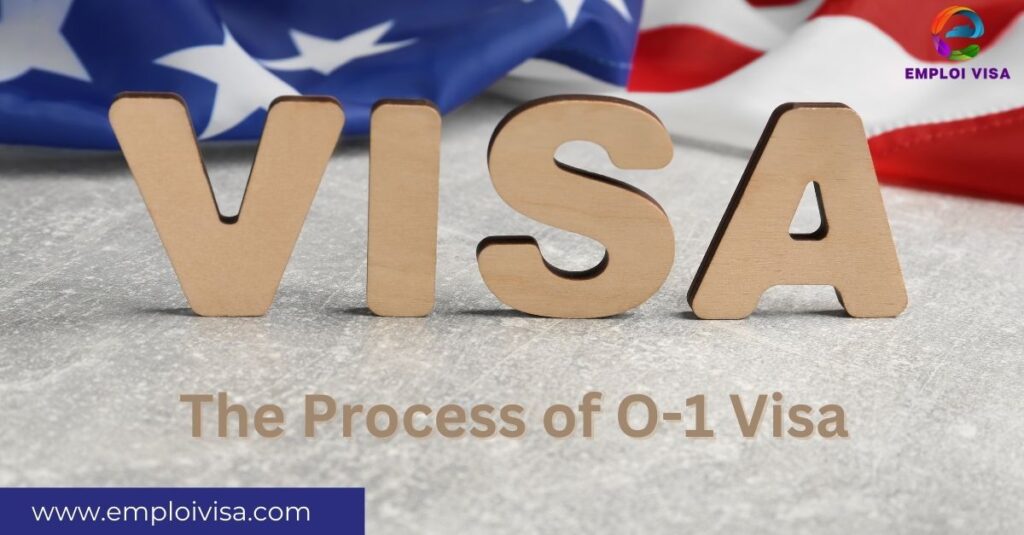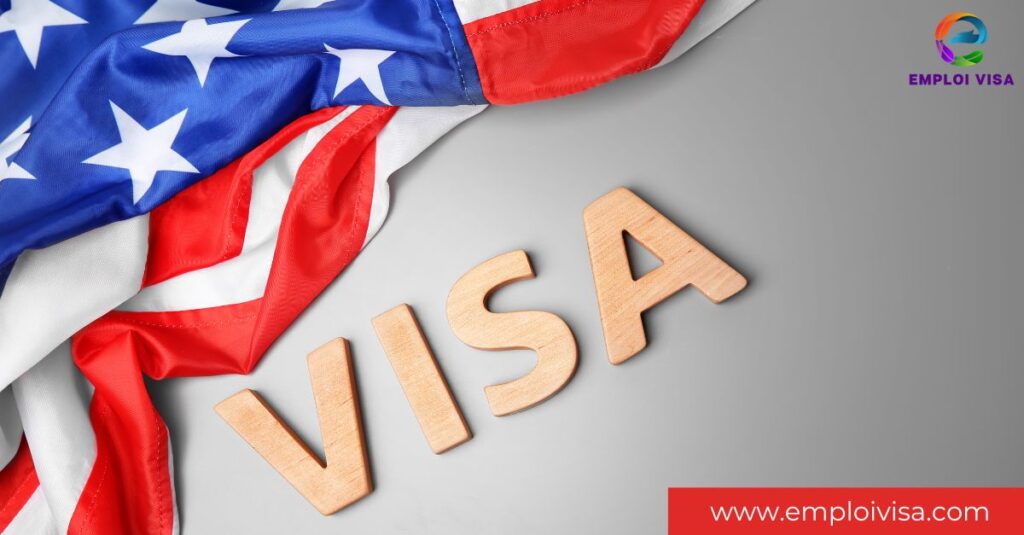
Getting a scholarship can change a student’s life, opening doors to more education and chances. But, getting a scholarship often means going through an interview. This guide will give you expert advice and strategies to help you do well in the interview.
Key Takeaways
- Understand the common types of scholarship interviews and what interviewers are looking for
- Conduct thorough research on the scholarship provider and your own academic achievements
- Develop a professional portfolio to showcase your qualifications
- Master the art of professional etiquette and body language
- Prepare for and practice answering common interview questions
Understanding Scholarship Interview Fundamentals
Entering the world of scholarship interviews can feel overwhelming. But, knowing the basics can boost your confidence. It’s important to grasp the different interview types and what interviewers expect. Mastering these fundamentals is crucial for making a strong impression.
Common Types of Scholarship Interviews
Scholarship interviews come in many styles, from one-on-one chats to panel discussions and group settings. Each type has its own challenges and needs a specific strategy. One-on-one interviews offer a personal conversation, while panel interviews test your ability to handle multiple people. Group interviews focus on your teamwork and communication skills.
What Interviewers Look For
Interviewers aren’t just looking for the smartest candidates. They want to see your passion for your field, your commitment to your community, and your future plans. Highlighting your leadership, problem-solving, and well-rounded personality can make you stand out.
Interview Formats and Settings
Interviews can happen in many places, from formal university settings to casual coffee shops. Knowing the setting can help you prepare. Whether it’s a virtual or in-person interview, being flexible and professional is key.
| Interview Type | What Interviewers Look For | Common Settings |
|---|---|---|
| One-on-One | Depth of knowledge, personal connection | On-campus, coffee shop, virtual |
| Panel | Ability to engage with multiple stakeholders | On-campus, conference room |
| Group | Collaborative skills, leadership potential | On-campus, community center |

By grasping the basics of scholarship interviews, you can prepare better and show off your strengths. Embracing the variety of interview styles and settings will help you feel more confident. This can increase your chances of winning the scholarship you desire.
How to Prepare for Scholarship Interviews: Tips from Experts
Securing a scholarship can be a big deal. Experts say the interview is key. They share expert interview tips to help you shine in your scholarship interview.
Start by researching the scholarship provider. Learn about their mission and values. This shows you care and helps you answer questions better.
Practice is essential. Get ready for common scholarship interview strategies. Prepare answers that highlight your skills and passion. Record yourself and ask for feedback to improve.
Experts suggest a positive mindset for your interview. See it as a chance to talk, not just answer questions. Smile, make eye contact, and be friendly to impress.
Follow these tips to ace your scholarship interview. Preparation, enthusiasm, and confidence are the keys. You’re one step closer to your educational goals.

“The scholarship interview is your chance to showcase your unique qualifications and passion. Embrace the opportunity to connect with the interviewers and let your authentic self shine through.”
–Jane Doe, Admissions Counselor
Essential Research and Documentation Preparation
Getting a scholarship can change your academic path. But, it needs careful planning. You must research the scholarship, organize your grades, and create a great portfolio.
Researching the Scholarship Provider
Start by learning about the scholarship provider. Know their mission, values, and what they look for in applicants. This helps you tailor your application to fit their needs.
Organizing Your Academic Achievements
Your grades and achievements are key to your application. Gather all your academic records, awards, and activities. Make sure it’s clear and shows your hard work and potential.
Preparing Your Portfolio
A good portfolio can impress the scholarship providers. Collect your best work, like papers and projects. Show it in a way that’s easy to understand and looks professional.
By doing thorough research, organizing your grades, and making a strong portfolio, you’ll stand out. This careful preparation boosts your chances of getting the scholarship you want.
Mastering Professional Etiquette and Body Language
Scholarship interviews are not just about your grades. They also test your professionalism, confidence, and how well you get along with others. Showing proper interview etiquette and body language is key to making a good impression.
For interview etiquette, dressing right is essential. Choose a clean, pressed outfit that shows you’re serious about the interview. Keep your posture good, make eye contact, and avoid fidgeting or nervous habits.
Your body language is also crucial. Show confidence and interest by sitting up straight and leaning forward a bit. Use open gestures and smile and nod to show you’re engaged and listening well.
| Dos | Don’ts |
|---|---|
| Dress professionally Maintain eye contact Sit up straight Use open body language Smile and nod | Wear casual or informal attire Fidget or avoid eye contact Slouch or cross your arms Appear disinterested or distracted Engage in nervous habits |
By showing professional conduct, you prove you’re a good fit for the scholarship. This will leave a positive mark on the interviewers.
Tackling Common Interview Questions
Getting ready for scholarship interviews can feel overwhelming. But, knowing the usual questions and how to answer them can boost your confidence. This guide will help you ace the interview and show off your strengths.
Highlighting Your Achievements and Goals
Interviewers often ask about your school wins, clubs, and future plans. Be ready to talk about your achievements in a clear and exciting way. When discussing your goals, explain how the scholarship will help you reach them.
Addressing Potential Weaknesses
Interviewers might ask about your weaknesses or challenges. Instead of dodging these, see them as chances to show you’re self-aware and eager to learn. Talk about how you’ve tackled obstacles and what you’ve done to get better.
Showcasing Your Unique Qualities
Interviewers want to know what makes you special. Prepare to share stories that show your character, problem-solving skills, and dedication to your field. This can make you stand out and leave a memorable impression.
| Common Scholarship Interview Questions | Effective Interview Answer Strategies |
|---|---|
| Tell me about yourself. Why are you interested in this scholarship? What are your strengths and weaknesses? How do you plan to use this scholarship to achieve your goals? What makes you a unique candidate? | Highlight your most relevant achievements and experiences. Explain how the scholarship aligns with your academic and professional aspirations. Discuss your weaknesses honestly, but emphasize how you’re working to improve them. Articulate your short-term and long-term goals, and how the scholarship will help you achieve them. Share personal stories or unique qualities that set you apart from other applicants. |
By getting ready for common scholarship interview questions and having a plan for your answers, you can stand out. Practice, stay confident, and let your unique qualities shine.
Conclusion
Starting your scholarship interview journey? Remember, success comes from good interview preparation summary and confidence. Experts have shared key tips to help you succeed.
You now know how to impress interviewers. This includes understanding different types of interviews and what they want. You also know how to act professionally and answer common questions.
Use the final tips to research well, organize your achievements, and be yourself. This will help you stand out.
The scholarship you’re aiming for is a big step in your growth. Go into the interview with a positive attitude. Show your strengths and passions. With hard work and a true desire to succeed, you’ll reach your educational goals.
FAQ
What are the common types of scholarship interviews?
Scholarship interviews come in different styles. You might face one-on-one, panel, or group interviews. Each type has its own rules and expectations. It’s key to know what to expect.
What do scholarship interviewers look for?
Interviewers check your grades, leadership, and outside activities. They also look at how well you communicate and think critically. Showing your passion for your field is important too.
How should I research the scholarship provider?
It’s vital to learn about the scholarship giver. Know their mission and the scholarship details. This helps you answer questions better and shows you’re really interested.
What should I include in my portfolio for the scholarship interview?
Your portfolio should highlight your achievements and activities. Include any awards, work samples, or recommendations. Make it neat and professional to show you’re ready.
How can I improve my body language and professional etiquette during the interview?
Good body language is key. Keep eye contact and sit up straight. Dress right and arrive on time. Your tone and words should be positive and professional.
What are some common scholarship interview questions, and how should I approach them?
Be ready for questions like “Tell me about yourself” or “Why this scholarship?” Give honest answers that show your skills and passion. Practice so you can speak clearly and confidently.






